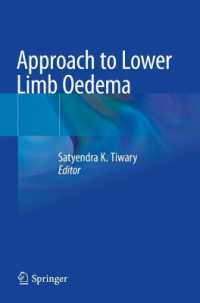Full Description
This book is an illuminating journey through a quarter-century of education in Southeast Asia. It offers an intricate examination of student performance in core subjects - mathematics, science, and reading - while transcending conventional academic assessments to underscore the pivotal role of student well-being in achieving educational success.
The content's strength lies in its meticulous analysis of voluminous datasets, historical trajectories, and cross-national studies. Addressing the profound impacts of the COVID-19 pandemic, the integration of technology, and the partnership between educators and families, this work provides a comprehensive perspective on education. Moreover, it augments its insights with real-world case studies and best practices from the region, rendering practical wisdom for nurturing academic excellence. In an age marked by rapid change and escalating complexity, this is an indispensable compass for educators, policymakers, and researchers, equipping them with knowledge to make informed decisions.
By foregrounding the imperative of well-being alongside academic accomplishments, the authors champion a holistic approach to education that meets the diverse and dynamic needs of Southeast Asian students, offering a roadmap toward enhanced educational quality, resilience, and the empowerment of future generations.
Contents
Chapter 1. Mapping Educational Performance through PISA's Lens
Chapter 2. PISA in Southeast Asia
Chapter 3. Educational Policies and Reforms in Southeast Asia
Chapter 4. Southeast Asian Students' Performance in Mathematics, Science, and Reading
Chapter 5. Socioeconomic and Cultural Factors' Influence on Student Performance
Chapter 6. Gender Equity Issues and Student Performance
Chapter 7. Wellbeing and Student Performance
Chapter 8. Student Attitudes and Performance in Mathematics, Reading, and Science
Chapter 9. Relationships between Gender, ESCS, and Wellbeing with Student Performance in Southeast Asian Countries: A Comparative Analysis of PISA 2022 Results
Chapter 10. Recent Challenges of Education in Southeast Asia
Chapter 11. Empowering Global Trends in Education: Adapting to a Changing World








